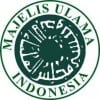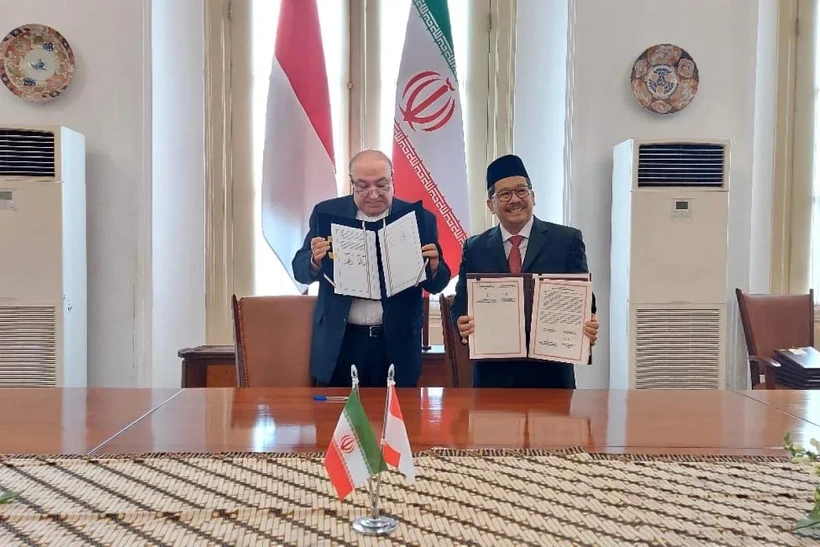As the government prepares the implementing regulations for the 2014 Halal Law, what can stakeholders expect?
By Gilang Ardana – American Chamber of Commerce in Indonesia (AMCHAM)
After hurriedly passing the controversial Halal Product Assurance Law (UU Jaminan Produk Halal)in September last year, the focus is now on the implementing regulations and the impact they will have on business.
The Ministry of Religious Affairs has confirmed that the government is preparing the implementing regulations and has targeted the end of this year for their completion.
These regulations have triggered much debate, with the various industries involved lobbying for greater accommodation of the business and commercial aspects of their operations. Of particular concern is the fact that the law was quietly rushed through the House of Representatives (DPR) in the final days of the 2014 term, with businesses claiming discussions of the law’s details were cut short.
What can we expect from these new implementing regulations?
Taking stock of the regulation
One of the significant points of the law is the shift to halal certification being mandatory. It is stated clearly in the Article 4 of the law: “Products that enter, circulate and are traded in the territory of Indonesia must be certified halal.” This has triggered much concern as the “products” are very broad. The law defines it to include products and/or services that are related to food, beverages, drugs, cosmetics, chemical products, biological products, genetically modified products and consumer goods that are worn, used or utilized by the public. Indonesia is the first country in the world to regulate in this way.
Under this law, businesses are obligated to separate the location, place and equipment for slaughtering, processing, storing, packaging, distributing, selling and presentation of halal and non-halal products. Non-compliance is subject to administrative sanctions in the form of written warnings or administrative fines. A penalty of five years imprisonment and Rp 2 billion in fines also faces any business that does not maintain the “halalness” of its products after they have obtained a halal certificate. The rise in costs is seen as a great challenge for companies.
Another significant point is the establishment of the new Halal Product Certification Agency (BPJPH)  under the Ministry of Religious Affairs. Currently, all certification is handled by the Indonesian Ulema Council (MUI) through its Food, Drug and Cosmetics Assessment Agency (LPPOM). BPJPH, as stated in the law, can set up representatives in local regions. Under the Law, the functions of the BPJPH are:
under the Ministry of Religious Affairs. Currently, all certification is handled by the Indonesian Ulema Council (MUI) through its Food, Drug and Cosmetics Assessment Agency (LPPOM). BPJPH, as stated in the law, can set up representatives in local regions. Under the Law, the functions of the BPJPH are:
- Formulate and stipulate a Halal Product Assurance (JPH) policy
- Issue and revoke halal certificates and labels on products
- Perform registration of halal certificates on foreign products
- Perform accreditation of Halal Examination Agencies (LPH)
- Certify halal auditors
- Collaborate with domestic and foreign institutions in organizing JPH.
This has raised some concerns as the authority of the body is very broad. In particular, it has been questioned why BPJPH has the accreditation function, but also has the authority to grant LPH to audit companies for halal product assurance.
 With the establishment of BPJPH, the process to secure a halal certificate is vastly more complicated:
With the establishment of BPJPH, the process to secure a halal certificate is vastly more complicated:
Before the law was enacted, the certification process was centralized to LPPOM and MUI. First, the applicant put in a request to LPPOM, which audited the applicant and reported to MUI. If the products were proven to be halal, the next step was the issuance of a halal fatwa to LPPOM, which would then issue the halal certificate.
So how will this process change? The roles of LPPOM and MUI will be shifted to BPJPH, and the law opens the possibility of forming another halal audit institution. The applicant will need to apply to BPJPH, which will then appoint an LPH (which could be LPPOM) to audit the applicant; the LPH will submit its results to BPJPH, which will then consult MUI, and the halal certificate will be issued upon MUI’s feedback.
What is mandated by the law?
Overall, the law mandated two significant points:
1) The establishment of BPJPH, at the latest three years after the enactment of the law, through a presidential regulation
2) The implementing regulations, by the latest two years after the enactment of the law, through government and ministerial regulations.
Siti Aminah, the Head of the Sub-Directorate of Halal Products of the Ministry of Religious Affairs, said that the ministry is now moving forward on the two mandates.
As the ministry needs also to create ministerial regulations, its policy team is finalizing the draft regulations this year. “We hope to finalize it in September 2015,” said Aminah during a seminar organized by Hukum Online in June.
Aminah also said that the presidential regulation on BPJPH had already been discussed and approved by the Ministry of Justice and Human Rights and the Ministry of Empowerment of State Apparatus and Bureaucratic Reform. The draft is now with the State Secretariat, awaiting the approval of President Joko Widodo.
“Once the president signs it, the Ministry of Religious Affairs will create the detailed regulation on the organizational structure of the BPJPH, and there will be public hearings on this,” said Aminah.
The presidential regulation on the BPJPH will cover its duties and functions; national and regional structure; and its functional areas.
The law mandates eight implementing regulations. Aminah said the government will merge those eight into two: 1) Government Regulations on the Implementation of Law No 33 of 2004 on Halal Product Assurance and 2) Government Regulations on the Halal Certification Tariff.
“We are expecting to finalize them in September,” Aminah said.
Aminah said the first regulation will cover:
1) Products that are obligated to be certified halal
2) Location, place and processing of halal products
3) The Halal Audit Institution (LPH)
4) Cooperation for halal certification
5) Monitoring and investigation function
6) Administrative and penal sanctions.
The second regulation will be focused on tariffs.
“There will be a group of tariffs based on industry size,” said Aminah. “We are trying to make the tariff affordable, and the money will go into the state treasury.”
The final regulation will come from the Ministry of Religious Affairs, providing more details and the technical implementation. The ministry is preparing seven regulations, which will detail technical matters on registration, administrative sanctions, supervision and labels.
Trouble ahead for SMEs
A major concern is the financial impact on small- and medium-sized businesses (SMEs). Although the law mentions that “for micro and small businesses, the cost of a halal certificate can be facilitated by other parties,” businesses are still waiting for details on what that actually means.
“The ministry is still finding the best ways to support and assist SMEs in implementing the regulations,” said Aminah. “We also need business input.”
Thomas Darmawan, head of the Permanent Committee of Food and Beverages at the Indonesian Chamber of Commerce and Industry (KADIN), believes SMEs will be hard hit.
“There are around 1.2 million entities in the Indonesia food and beverage industry, only 6,000 are big companies, the rest are UKM [co-operatives and small- and medium-sized businesses]” said Darmawan. “SMEs will find it hard to implement the Law.”
Darmawan said that the law will burden SMEs and the government should be fully prepared to assist the SMEs and also prepare a good outreach strategy in halal certification.
“Indonesia has around 17,500 islands, from big islands to small ones,” he said. “How will the government reach out to remote areas on this issue?”
He said that the industry is now focusing on assisting the government in drafting the implementing regulations.
“A judicial review will be the last option if all of the efforts are not successful,” he said.



